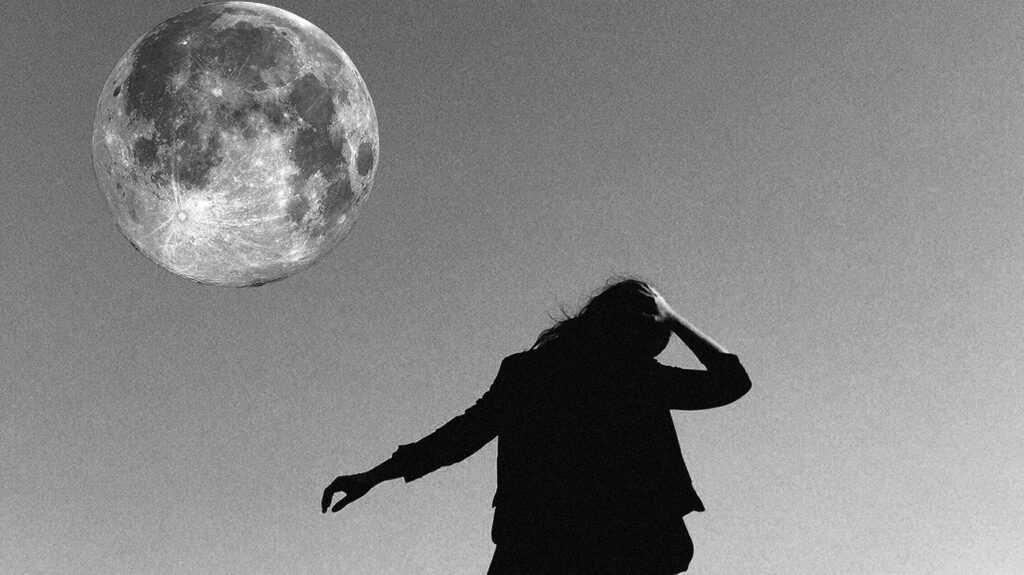Menstrual cycles and lunar cycles: Is there a link?
13 February, 2021

For years and years, scholars and writers have speculated about the likelihood of a connection between lunar cycles and menses. And in 2021, it appears that the potential synchronicity between your two remains to fascinate.
Menstruation is a cyclical process, as are the phases of the Moon - from new moon to waning crescent. Little question, then simply, that poets, philosophers, and scholars have, over the centuries, drawn parallels between the two, suggesting that they could possibly be connected.
The mystique of the Moon and that of female bodies - at the same time when medicine was in its infancy - led Greek philosopher Aristotle to claim, in the 4th century before the common era, that:
“[T]he menses have a tendency to occur naturally through the waning moon […]. For this period of the month is usually colder and extra humid due to the losing and disappearance of the Moon.”
Age-old parallels between your menstrual cycle and the phases of the moon have very likely also resulted in some females referring to their periods as “moon cycles” even today.
Is there a really website link between lunar cycles and menstrual cycles? In this Specialized Feature, we investigate.
Synch or zero synch?
Popular belief and several works of literature advise that there can be some synchronicity between menses and the phases of the Moon.
That may be predicated on the similarity of duration around menstrual cycles and lunar cycles.
One total revolution of the Moon around the Earth takes 27 days, 7 hours, and 43 mins. A moon phase routine, during which the volume of Moon surface that people are able to look at from Earth waxes and wanes, takes 29.5 days.
The length of menstrual cycles could be in the number of 25-30 days, with the median duration of a menstrual period being 28 days.
One 1986 analysis - which Sung Ping Legislation, from the Section of Gynecology in the Canton Traditional Chinese Medical College or university found in Guangzhou, conducted - did seem to be to find a website link between menstrual and lunar cycles.
The study, which appears in the journal Acta Obstetricia et Gynecologica Scandinavica, studied the cycles of 826 feminine participants, aged 16-25 years, over “4 lunar months in different seasons.”
The study concept, the author writes, “was based on the idea of traditional Chinese remedies that human being physiological rhythms screen synergism with other natural rhythms.”
Law discovered that, in the analysis cohort, “a large proportion” of menstruations occurred about the brand new moon. This led the researcher to deduce that ovulation intervals tended to coincide with the entire moon.
However, newer research contradicts the idea that menstrual cycles sometimes synch with moon phases.
For instance, a year-long retrospective analysis from 2013 - which appears in the journal Endocrine Regulations - found no “synchrony of lunar phases with the menstrual cycle.”
This study monitored 980 menstrual cycles in 74 females of reproductive age over a twelve months. The authors declare that the findings emerged “in defiance of classic beliefs.”
A far more recent study, which the company who method the period tracking iphone app Clue commissioned in 2016, likewise concludes that synchrony somewhere between menstrual and moon cycles is a “myth.”
This research, which analyzed over 7.5 million menstrual cycles, shows that periods most likely carry out “not sync with the lunar cycle.”
The researchers collected data on menstrual patterns from 1.5 million Clue users. Clue info scientist Dr. Marija Vlajic Wheeler analyzed them.
“Looking at the data, we observed that period begin dates fall randomly through the entire month, whatever the lunar phase,” says Dr. Wheeler.
Clue’s raw data and subsequent analysis aren't available to the public.
Intermittent synchronies
A new analysis in the journal Research Advances, however, shows that there can be more to the idea of synchrony between lunar phases and menstrual cycles than previous exploration may have indicated.
This small-scale study analyzed the menstrual patterns of 22 participants who had kept tabs on their period onset for 32 years.
“Together, we'd recordings of 15 women aged [35 years and younger] and of 17 women aged [over] 35 years,” the experts write.
Their study found that those whose menstrual cycles were longer than 27 times had intermittent synchrony with two of the Moon’s cycles: the luminance cycle and the gravimetric cycle.
The luminance cycle identifies the Moon’s different mild intensity as its position in relation to the Sun changes and it passes through its several “phases,” from latest moon to full moon.
The gravimetric cycle identifies the cyclical difference of the Moon’s “pull” on the Earth as it orbits around our world. Since the Moon’s orbit is usually elliptical, it is sometimes even more distant from the Earth, and sometimes it comes closer.
Its routine from perigee (when it's closest to the planet earth) to apogee (when it's farthest from the planet earth) lasts 27.5 days. Based on where it is in its orbit, the Moon exerts a distinct gravitational pull on various areas of the Earth.
A third lunar cycle - the tropical month, or the mean period of the Moon’s revolution from anybody stage in its orbit back again to that same point - likewise seemed to be associated with period onset, though “to a smaller degree,” according to the study authors.
The team also notes that, while menstrual cycles intermittently synched with the Moon cycles, the probability of synchrony faded as the participants got older.
Overall, the experts observed that the Moon’s light intensity routine appeared to be the most influential lunar cycle in terms of its influence on menses onset.
“We hypothesize that in ancient times, human being reproductive behavior was synchronous with the Moon but our modern standard of living, notably our increasing contact with artificial light, has got changed this relation,” they explain.
Source: www.medicalnewstoday.com
TAG(s):
